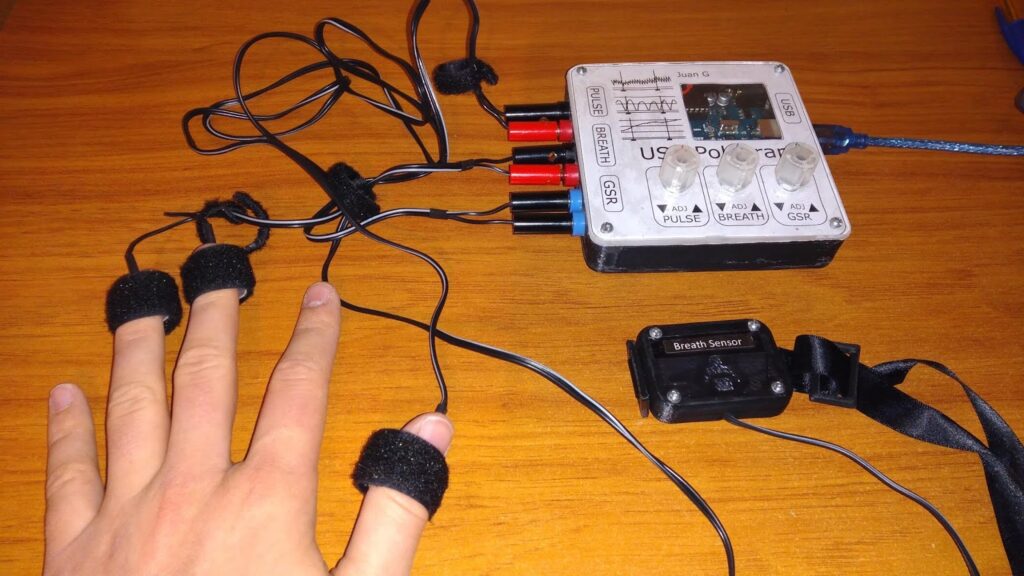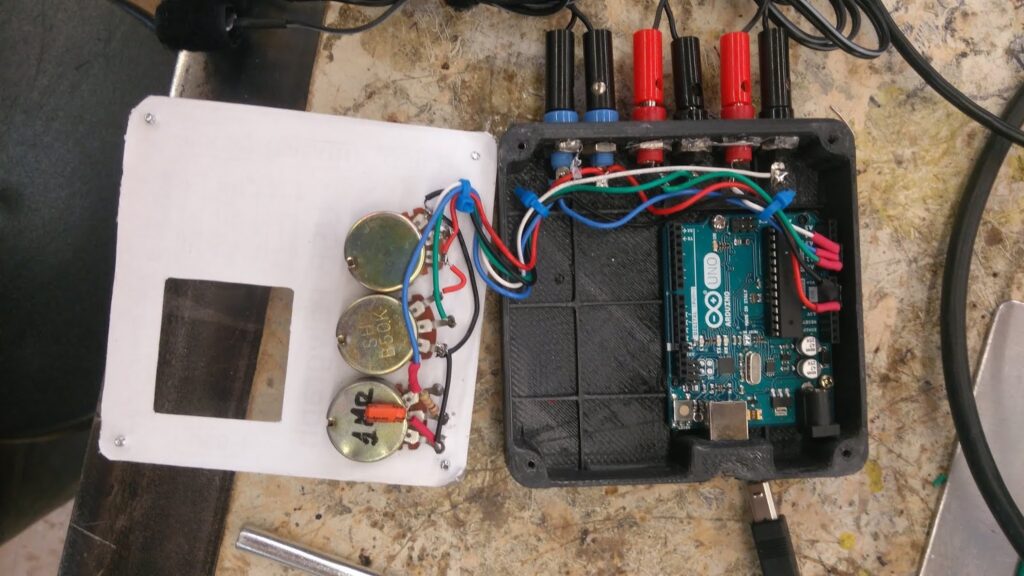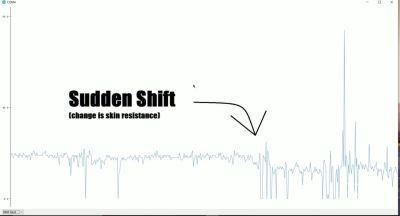28

Want to know if someone is telling you the truth? Well, unfortunately Juan Gg’s “USB Polygraph” isn’t a professional product and won’t actually give you an answer. However, it is a neat exploration into biometrics that incorporates Arduino, some sensors, and data visualization.
The DIY lie detector does measure one’s galvanic skin response, pulse, and breathing, so it’s an interesting way to observe “suspects” when questioned. Perhaps one could even use it to monitor a person’s vitals when performing various physical activities.

The device collects sensor readings via an Arduino Uno. These are then passed along to a nearby computer over serial, which graphs everything using a custom Python program.
If you’d like to make your own, code and mechanical files are available on GitHub!
This is a USB Polygraph, which I designed and built as a classroom project on June 2018. The hardware side is pretty simple, an Arduino UNO collects data from some sensors and sends it via serial. On the computer, a Python program takes that data and not only graphs it, but it also allows the user to save it, manages questions and adds question and answer markers to the graphs so results can later be inspected. All results are saved in .txt files.



